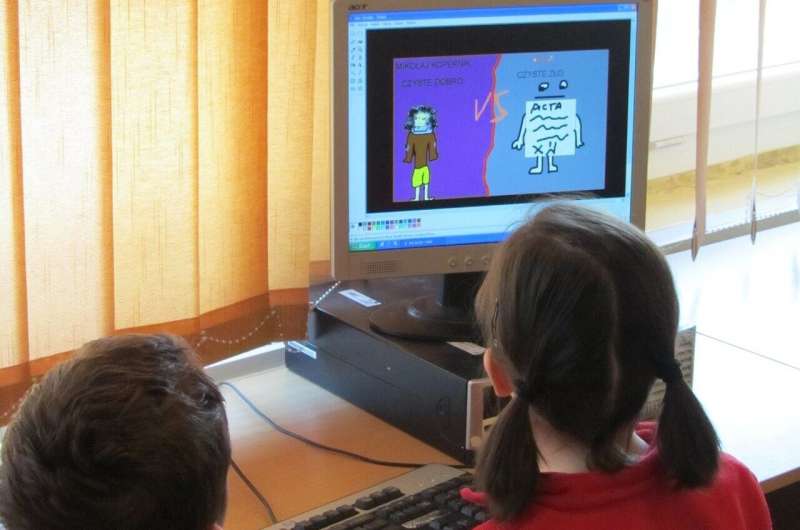This article has been reviewed according to Science X's editorial process and policies. Editors have highlighted the following attributes while ensuring the content's credibility:
fact-checked
trusted source
proofread
Citizen science inspires kids to take local action

North Carolina State University researchers recently found that a program designed to get Girl Scouts involved in citizen science—programs where members of the public can participate in real scientific research—not only taught girls about the process of science, but also motivated them to tackle scientific or environmental problems in their communities.
The findings demonstrate the impacts citizen science projects can have on their participants and offer lessons for other organizations on how to structure STEM-focused learning opportunities using citizen science.
The study, "Facilitator organizations enhance learning and action through citizen science: a case study of Girl Scouts' Think Like a Citizen Scientist journey on SciStarter," was published online July 26 in the journal Environmental Education Research. Co-authors included K.C. Busch, Suzanne Harper, Amy Muslim, Kaleigh McKenna and Darlene Cavalier.
"We've found that after participating in citizen science, students do not just learn more science content or the process of science, or have better attitudes or trust in science," said study co-author Caren Cooper, professor of public science at NC State. "It can be the basis for motivating action."
The study evaluated the impact of a partnership between the Girl Scouts of the U.S. and SciStarter.org, an online hub for citizen science projects. Between 2017 and early 2020, more than 200 Girl Scout troops with girls between the ages of 4 and 11 participated in a program called "Think Like a Citizen Scientist."
First, the Girl Scouts learned about making observations or predictions, collecting data and doing data analysis. Then, they signed up to participate in a citizen science project through SciStarter. The most popular project was one led by applied ecology researchers at NC State called "Ant Picnic," where volunteers created a picnic for ants, waited an hour and recorded the number of ants that showed up.
"These citizen science projects were chosen by Girl Scouts and SciStarter to be age-appropriate, and were part of a multi-stage curriculum, or 'journey," designed to introduce girls to citizen science," said the study's lead author, Haley Smith, a Ph.D. candidate in NC State's Fisheries, Wildlife, and Conservation Biology program. "The Girl Scouts' program design is a really great model, where learning activities are structured to build off of each other. Girls gain more independence as they go along. That's something other organizations could use to set up participants in citizen science projects for success."
After participating in the citizen science projects, the Girl Scouts completed "Take Action Projects" in their communities. These projects included activities such as installing recycling bins; educating family members about water pollution; creating gardens at a YMCA to attract native insects; raising money to buy science books for the local library; and even sewing sleeping bags for a hedgehog at a nature center. Most girls (81%) chose projects addressing science or environmental topics, and many of the projects (66%) were designed to educate or inspire others.
"In the overwhelming majority of cases, we saw girls taking what they had done with citizen science and extending that in some way, such as by supporting science literacy, promoting environmental goals like recycling, or providing habitat," Smith said.
Girl Scout troop leaders reported in surveys that girls who completed the program learned about science and environmental topics and about the process of science, developed confidence in STEM, and received other benefits. Most importantly, they learned to identify and address problems in their communities.
"Because of this research, we now have empirical qualitative data that reinforces the crucial role of organizations like the Girl Scouts in facilitating participation in citizen science, and therefore in expanding awareness of, access to, and engagement in, science and related local actions," said Darlene Cavalier, co-author and founder of SciStarter.
More information: Haley E. Smith et al, Facilitator organizations enhance learning and action through citizen science: a case study of Girl Scouts' Think Like a Citizen Scientist journey on SciStarter, Environmental Education Research (2023). DOI: 10.1080/13504622.2023.2237705
Provided by North Carolina State University





















